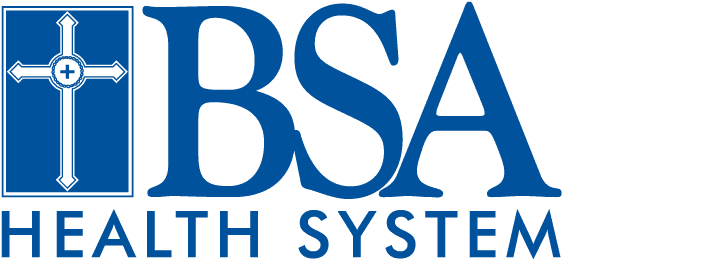According to the Centers for Medicare and Medicaid Services (CMS), medication non-compliance is the number one cause of readmissions to hospitals. One study showed that more than half of patients at hospitals nationwide had an error in their medications, such as the wrong drug, the wrong dosage, the wrong frequency, or a potentially dangerous interaction with another drug. The BSA Pharmacy Department launched programs to tackle these important issues head on and thereby reduce errors and prevent unnecessary readmissions.
Travis Lawler, pharmacy director, and his team have begun two programs aimed at ensuring that our patients are taking the right medications at the right time in the proper dosages, and that there are no adverse drug interactions. Under the first program, a pharmacist meets with each patient during the discharge process, and the second program involves pharmacists performing an initial medication review with patients who are admitting to the Emergency Department.
Four pharmacists are currently assigned to the discharge program, and their purpose is to do a medication review with patients prior to discharge to make sure that they understand how to take their medications. When an error is discovered, such as an incorrect dose or potentially harmful drug interaction, the pharmacist will contact the patient’s nurse and then contacts the patient’s physician to discuss the error. The pharmacist will then obtain approval and correct the error.
Beginning in July, four additional pharmacists will be assigned on a full time basis to the Emergency Department. Their purpose is to perform a Medication Use Evaluation with every patient who enters the Emergency Department. All patients who enter the department are asked what medications they are currently taking, how much and how often. There is a higher potential for errors at this time because the entry is dependent on the patient’s memory. A trained pharmacist performing this task with the patient will improve the accuracy of the medication list that is entered into our system. During this interview, the pharmacist will check for any errors in the medications the patient is currently taking, and this encounter will allow an opportunity to educate the patient on their medications.
Often during a medication review, a pharmacist will discover that a patient has not been taking a prescribed medication either because the patient didn’t understand the drug’s importance or couldn’t afford to pay for the drug. The pharmacist can reinforce to the patient the importance of taking medications exactly as prescribed, and if a patient cannot afford a medication, pharmacists and case managers will work to find a way to get the medication that he or she needs. Many times pharmaceutical companies are willing to provide free or discounted medications for patients in need.
The BSA Pharmacy Department will be tracking these two programs closely going forward, and the team hopes to see a large positive impact on improving medication accuracy for our patients.

